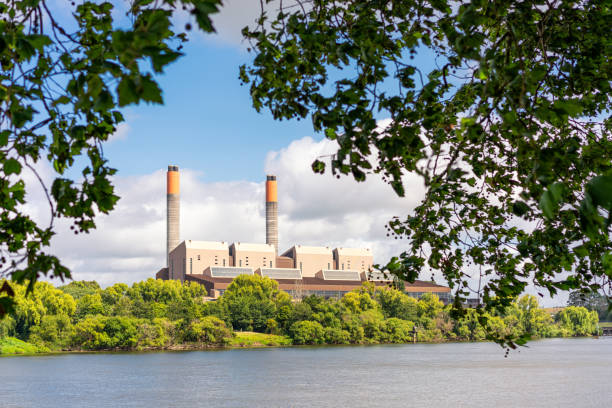The biggest issue facing us today is sustainability in and of itself. It’s time to take decisive action because our reliance on single-use plastics and fossil fuels is having a negative effect. As a result of public pressure on industry and government, we are now beginning to witness unprecedented changes.
There are abundant opportunities in packaging. If consumer products are package sustainably and are support by the appropriate infrastructure, this will significantly lessen the harm done to the environment. Utilizing recyclable, reusable, or biodegradable materials is primarily intend to achieve this. At the same time, this switch comes with significant challenges. One of the main challenges is the unpredictable nature of the demand for sustainable packaging. Here, we will tell you about navigating this challenge to succeed in your sustainability efforts.
Key drivers in the market for sustainable packaging
The market is expanding due to a number of factors. These variables are assisting the market participants in developing strategies to take advantage of the market drivers and secure a more promising future. These are a few of the main ones:
- The main factor boosting the expansion of the global market for sustainable packaging is the demand for green packaging. This is because the industry has the greatest environmental impact. As a result, the global market is expanding because of the increasing demand for eco-friendly packaging options.
- Another element driving the market is the packaging material’s ability to be recycle and reuse. The materials can be recycle and use for a long time. The demand for recyclable and reusable packaging materials has increased as a result of this. These requirements have fueled the expansion of the global market.
- However, transitioning to sustainable packaging is no walk in the park for business. The following are some of the obstacles that could prevent the global market for sustainable packaging from expanding:
- The major obstacle is the high cost of packaging solutions. This is because these solutions demand a lot of research and development, both of which are expensive.
- The high cost and the availability of raw materials are two additional factors that could limit the expansion of the global sustainable packaging industry.
- Unpredictable demands of sustainable packaging markets. This is a significant challenge for businesses because it may not be clear what exactly the consumers may demand in the future. Their demands keep changing, and it is quite difficult to tell what will succeed in the future. Let us tell you more about this in the following section.
The unpredictable demands of sustainable packaging markets
The entire supply chain is impact by packaging, from the material producer than to the converter, to the owners of a brand, to the retailer, to the recycling and waste organizations, and back to the material supplier.
The difficulty for packaging manufacturers and businesses that use the materials begins with deciding which new material is most appropriate to invest in given the delicate complexities and the frequently shifting tide of public opinion.
Over time, we have seen the demand for materials change in light of sustainability. For example, there was previously a demand for lightweight materials. As a result, manufacturers and retailers shifted from glass bottles to plastic ones. However, this has changed, and plastic materials are now on the blacklist.
According to experts, while the media and lobbying organizations put pressure on packagers, many aspects of sustainability, like recycling, are outside of their control.
Instead of being widely recycle, so-call recyclable and sustainable materials, such as bioderive and biodegradable plastics that packagers may look to switch to in place of ones derive from fossil fuels, are collect as general waste instead.
Additionally, the collection and recycling of waste are not centrally coordinate in the US, UK, and other countries, which leads to inconsistencies and prevents closed-loop recycling of packaging materials.
A few years ago, Unilever Australia demand that waste management rules and laws be uniformly apply at all three levels of government. It claimed that the development of sustainability was being slow down by disparate recycling laws.
A disjointed approach to waste management could make it more difficult to invest in recycling facilities, which would limit the supply of materials available to packagers. There is an overabundance of some materials while there is a shortage of others.
This is even more difficult in developing countries, where pollution problems are much worse and recycling technology is much less developed.
Navigating the challenges
There are practical ways for packagers to be more eco-friendly, even though there are many obstacles that are beyond their control. After all, implementing sustainability at the design stage to minimize size and material use frequently results in cost savings.
One way is to employ made-to-fit technology in packaging e-commerce items more snugly. Machines applying this technology promote the fill rate for a single shipment. This reduces transportation carbon emissions, an element of sustainability that is often overlook. Investment in this technology recompenses for itself in a short while. Experts contend that while the future of packaging will be challenging due to unpredictable demand for sustainable packaging, businesses need to be flexible enough and visionary to succeed.
Additionally, businesses don’t need to rush into making major changes, including implementing sustainable packaging. In an environment where businesses are uncertain about consumer demands of sustainable packaging markets, doing it incrementally helps boost their business while monitoring and adjusting to trends. Since the world is changing so quickly and it takes time to implement something from our point of view, it is better to begin small and scale up.
The packaging sector, as well as the industries it supports, has a great opportunity to lessen the environmental impact of their operations. The transition to sustainable alternatives cannot, however, be make overnight. GPA Global understands this and aims to make a change one step at a time by creating high-quality biodegradable packaging materials in a variety of forms to support businesses. Contact us right away if you’re interest in purchasing our eco-friendly packaging.



